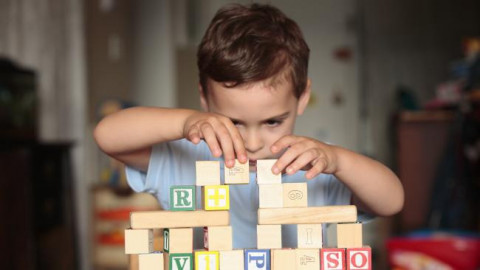
The $22 billion national disability insurance scheme agency will release a scant six-page “approach” to early intervention, its long-awaited strategy to deal with ballooning numbers of children diagnosed with autism and potential cost over-runs.
The six-page document has been criticised by the sector as being “laughably deficient” and contains no detail at all about how children will be included in the scheme with the key initiative being to split more than half of the 106,000 children with a disability into “family” support which won’t cost the NDIS any money.
The agency will also release its 90-page research report, first revealed by The Australian, which recommends a gold standard 20-hours per week early intervention for children who have received a diagnosis of autism.
According to Centrelink data there are more than 73,000 children aged up to 15 diagnosed with autism in Australia. The NDIS believes it will have 106,000 children with disability in the scheme in 2019/20 but only 47,000 who would be eligible for early intervention.
The Early Intervention approach was meant to be the final say in the agency’s response to the complex challenges but deputy chief executive officer Louise Glanville was unable to say when that work might be completed.
“That will be our public pitch trying to explain what this is,” she said.
“I imagine over time we want to really get out and talk about it much more thoroughly, as much as possible. Like everything we do we will be evaluating it along the way, seeing if there is any need to tinker with it.”
Ms Glanville said the agency had created a “very wide gateway” of children aged 0-6 who would be included in the early intervention phase of the scheme, recommended by the Productivity Commission to save money down the track.
It has been confronted with the challenge of precisely how many people would be eligible.
“A lot of children will come through that gateway but the numbers that will actually become participants in the NDIS in terms of those with funded packages may well be less,” she said.
For those who don’t receive funded support the agency wants to give families “emotional support” and some “tips” on how to help their children adapt to the world around them.